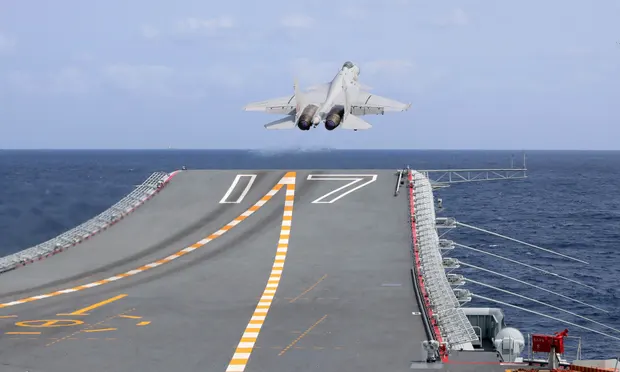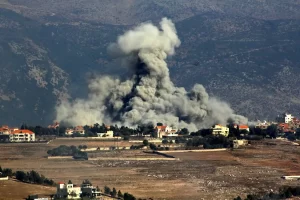The documents, part of a series allegedly leaked by the US air national guardsman Jack Teixeira, emerged as G7 foreign ministers met to discuss a common China strategy and Beijing briefly halted flights over part of the East China Sea on Sunday.
The classified documents seen by the Washington Post reveal that Taiwan’s military leaders doubt their air defences can “accurately detect missile launches” and that only about half of the island’s aircraft are capable of effectively engaging the enemy.
The documents also said Taiwan feared moving its aircraft to shelters could take up to a week, leaving them vulnerable to missile strikes, and that China’s use of civilian ships for military purposes was hampering US intelligence’s ability to predict an invasion.
Pentagon analysts concluded China’s air force would find it far easier to establish early air superiority than Russia did in its invasion of Ukraine.
Other leaked intelligence documents to surface on Sunday showed the Russian government had become much more successful at manipulating social media and search engine rankings than was previously believed, the Post reported.
Disinformation about the Ukrainian army and vaccine side effects were boosted online by hundreds of thousands of Russian-run accounts whose operators claimed they were detected by social media companies only about 1% of the time, according to one assessment seen by the paper.
“Google and Meta and others are trying to stop this, and Russia is trying to get better,” Thomas Rid of Johns Hopkins University’s School of Advanced International Studies told the paper. “The figure you are citing suggests that Russia is winning.”
China views Taiwan as part of its territory to be retaken one day, by force if necessary. Xi Jinping, the Chinese president, has expanded and modernised the People’s Liberation Army and China’s armed forces are thought to be 14 times the size of Taiwan’s.
Taiwan’s defence ministry said in a statement to the Post that it “respects outside opinions about its military preparedness” but its response to recent Chinese military exercises showed officers were “absolutely capable, determined and confident”.
Taiwan last week staged large-scale emergency response drills enacting scenarios including missile and chemical weapons attacks, after China held its latest military exercise around the island, 100 miles (160km) off the Chinese mainland.
Beijing’s “Joint Sword” military manoeuvres followed a recent visit by the Taiwanese leader, Tsai Ing-wen, to the US – the island’s main security backer – for meetings with a bipartisan group of lawmakers including the House speaker, Kevin McCarthy.
Flights from northern Taiwan were delayed on Sunday morning after China launched a satellite rocket that dropped debris into waters north of the capital, Taipei. Taiwan’s defence ministry said the incident posed no threat to “our nation’s territory”.
Taipei said Beijing originally declared a no-fly period spanning parts of three days for the launch of a “new meteorological satellite” from a site in north-western China, but after negotiation the ban was reduced to about 30 minutes.
Josep Borrell, the EU’s foreign policy chief, said on Sunday at the start of the G7 foreign ministers’ meeting in Japan that Europe’s relationship with China would be determined by Beijing’s behaviour – including what happens with Taiwan.
Borrell highlighted two key themes of the three-day meeting: the need for a united approach to China, and growing concerns about Taiwan. “Anything that happens in Taiwan strait will mean a lot to us,” he said.
A senior US state department official also said the G7 foreign ministers would devote much of the meeting to discussing a “common and concerted” approach to China, reflecting “collective concern about a number of the actions that China is taking”.
Germany’s foreign minister, Annalena Baerbock, stressed the importance of unity, adding: “As democracies, we are successful in systemic competition with autocratic forces when our partners and friends around the world have confidence in us.”
The US secretary of state, Antony Blinken, said on Saturday during a visit to the Vietnamese capital, Hanoi, that the intelligence leaks – the bigest in the US for a decade – had not affected Washington’s relations with its allies.
“Based on conversations that I’ve had, I have not heard anything that would affect our cooperation with allies and partners,” Blinken said, adding that he had heard “appreciation” for the steps Washington has taken.
Teixeira, 21, is suspected of leaking classified documents including verbatim transcripts and classified documents on a Discord chatroom. He was arrested last week and charged under the Espionage Act.
President Joe Biden said on Friday he had ordered investigators to determine why the alleged leaker had access to the information, which embarrassed Washington by revealing its spying on allies.
Source: The Guardian










